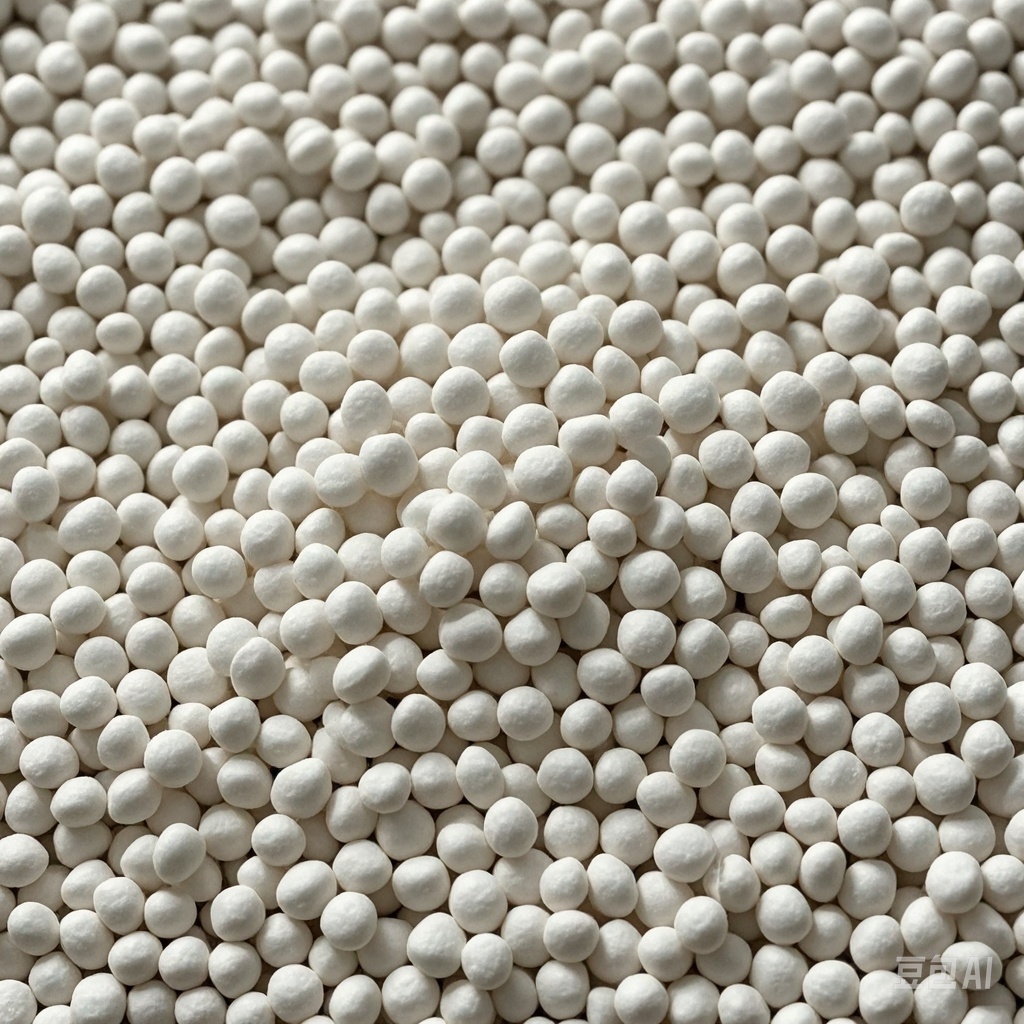
Calcium ammonium nitrate is an inorganic compound with the chemical formula Ca(NO3)2(NH4)2. It is a high-efficiency and eco-friendly green fertilizer, widely used in greenhouse and field cultivation of grain crops, cash crops, flowers, fruit trees, vegetables, etc. This article will introduce the advantages, usage methods and precautions of calcium ammonium nitrate in fertilizers.
The Advantages of Calcium Ammonium Nitrate in Fertilizers
- Provide abundant nitrogen and calcium. Calcium ammonium nitrate contains 21-27% of nitrogen and 8% of calcium, which are essential elements for plant growth and development. Nitrogen is one of the main nutrients for plants, involved in plant photosynthesis, respiration, protein synthesis, nucleic acid synthesis and other life activities. Calcium is one of the secondary nutrients for plants, involved in plant cell wall formation, cell division, signal transduction, enzyme activity regulation and other physiological processes.
- Provide directly absorbable nitrate nitrogen. The nitrogen in calcium ammonium nitrate exists in the form of nitrate nitrogen, which can be directly absorbed and utilized by plant roots without transformation in the soil. This can improve the utilization efficiency of nitrogen by plants, reduce the loss and fixation of nitrogen, save fertilizer dosage, and reduce costs.
- Improve soil acidity and structure. Calcium ammonium nitrate is a physiologically neutral fertilizer, which acidifies the soil less than many common nitrogen fertilizers. It is suitable for acidic soils, can neutralize acidic substances in the soil, increase soil pH, increase soil buffering capacity, and improve soil fertility. The calcium in calcium ammonium nitrate can also improve soil structure, increase soil permeability, prevent soil hardening, salinization, infertility and other problems.
The Usage Methods of Calcium Ammonium Nitrate in Fertilizers
- As a base fertilizer. Calcium ammonium nitrate can be applied to the soil before or during sowing, as a base fertilizer, to provide sufficient nitrogen and calcium for plants, and promote plant early growth and development. Generally, the dosage per acre is 25-50 kg, which can be adjusted according to the crop needs and soil conditions.
- As a seed fertilizer. Calcium ammonium nitrate can be mixed with seeds during sowing, or applied around the seeds, as a seed fertilizer, to provide fast and effective nitrogen and calcium for plants, and promote plant germination and emergence. Generally, the dosage per acre is 5-10 kg, which can be adjusted according to the crop needs and soil conditions.
- As a topdressing fertilizer. Calcium ammonium nitrate can be applied timely and appropriately during the plant growth period, according to the plant growth status and nitrogen demand, as a topdressing fertilizer, to provide timely and effective nitrogen and calcium for plants, and promote plant stem and leaf growth, flower and fruit formation, and quality improvement. Generally, the dosage per acre is 10-20 kg, which can be adjusted according to the crop needs and soil conditions.
- As a foliar fertilizer. Calcium ammonium nitrate can be diluted and sprayed on the plant leaves, as a foliar fertilizer, to provide rapid and effective nitrogen and calcium for plants, and promote plant photosynthesis, stress resistance, disease resistance, and increase plant vitality and gloss. Generally, the dosage per acre is 1-2 kg, which can be adjusted according to the crop needs and soil conditions.
The Precautions of Calcium Ammonium Nitrate in Fertilizers
- Avoid mixing with alkaline fertilizers. Calcium ammonium nitrate and alkaline fertilizers such as calcium hydroxide, sodium carbonate, etc., will react with each other, reduce fertilizer efficiency, waste fertilizer, and even produce harmful substances.
- Avoid mixing with organic fertilizers. Calcium ammonium nitrate and organic fertilizers such as manure, compost, etc., will accelerate the decomposition of organic matter, release a large amount of ammonia gas, cause nitrogen loss, pollute the environment, and affect fertilizer efficiency.
- Avoid contact with combustible materials and reducing agents. Calcium ammonium nitrate is an oxidizer, with flammability, and contact with combustible materials and reducing agents such as sawdust, coal, sulfur, etc., will cause fire or explosion hazards.
- Avoid high temperature and humid storage conditions. Calcium ammonium nitrate will decompose at high temperatures, producing nitrogen oxides, ammonia, oxygen and other gases, increasing the risk of explosion. Calcium ammonium nitrate will absorb moisture in humid conditions, agglomerate, reduce fertilizer efficiency, and even decompose, releasing toxic gases.
Conclusion
Calcium ammonium nitrate is an inorganic compound, a high-efficiency and eco-friendly green fertilizer, widely used in greenhouse and field cultivation of grain crops, cash crops, flowers, fruit trees, vegetables, etc. It can provide abundant nitrogen and calcium, provide directly absorbable nitrate nitrogen, improve soil acidity and structure, and improve farmland fertility.




